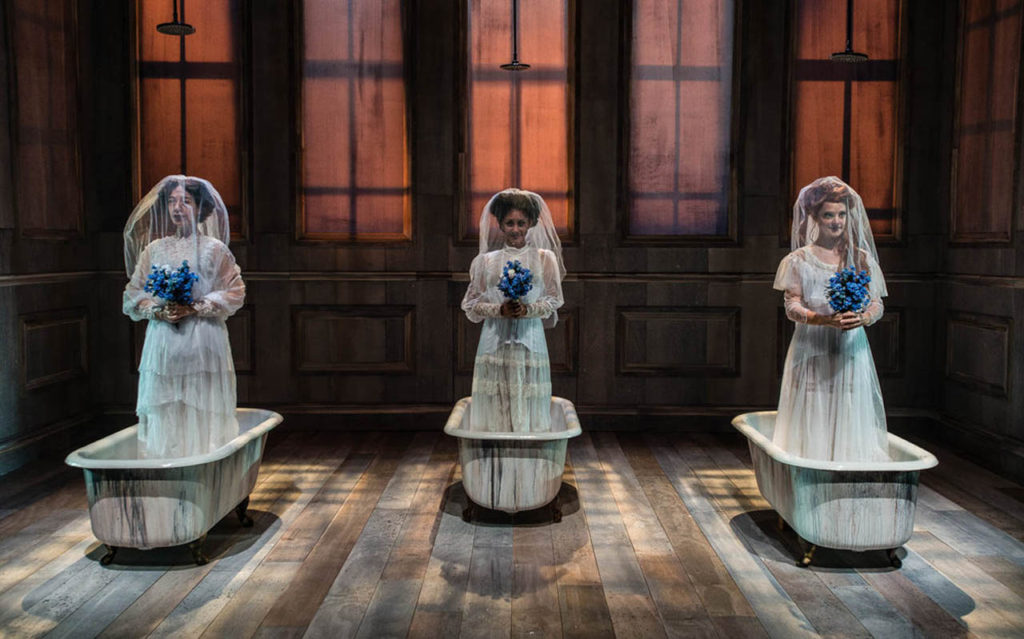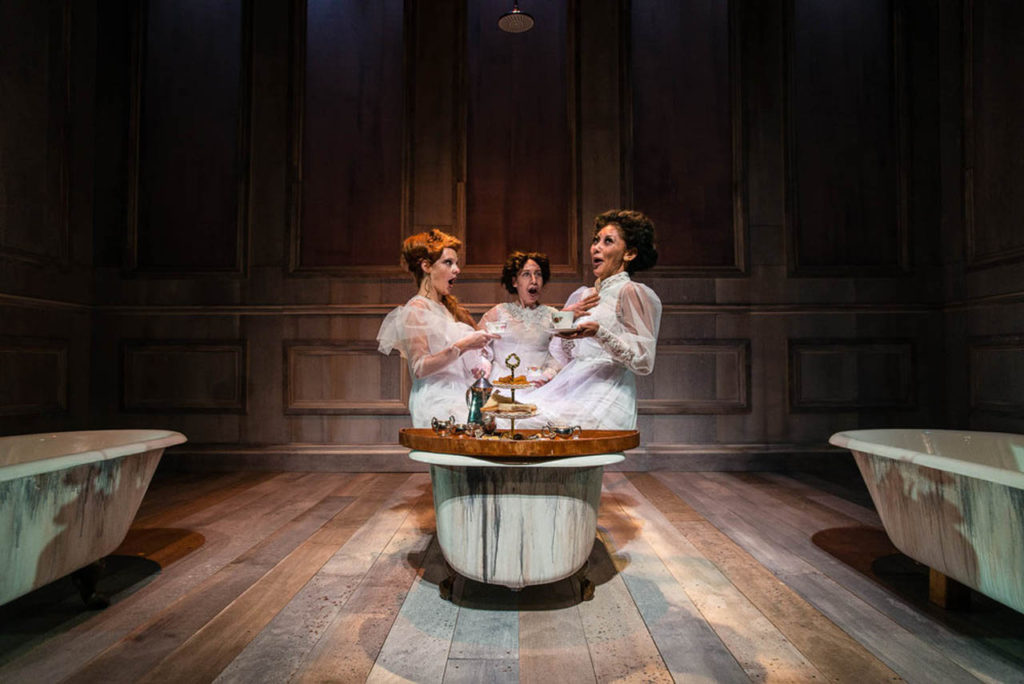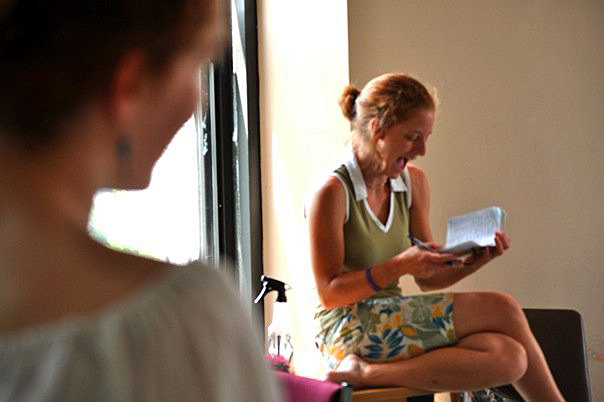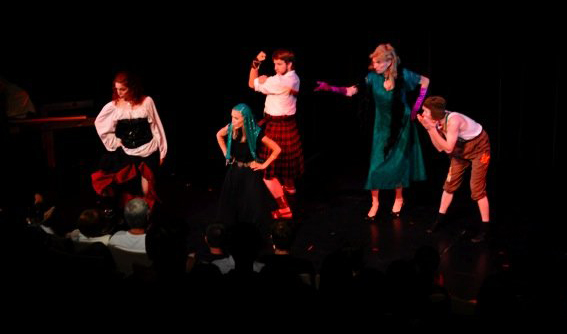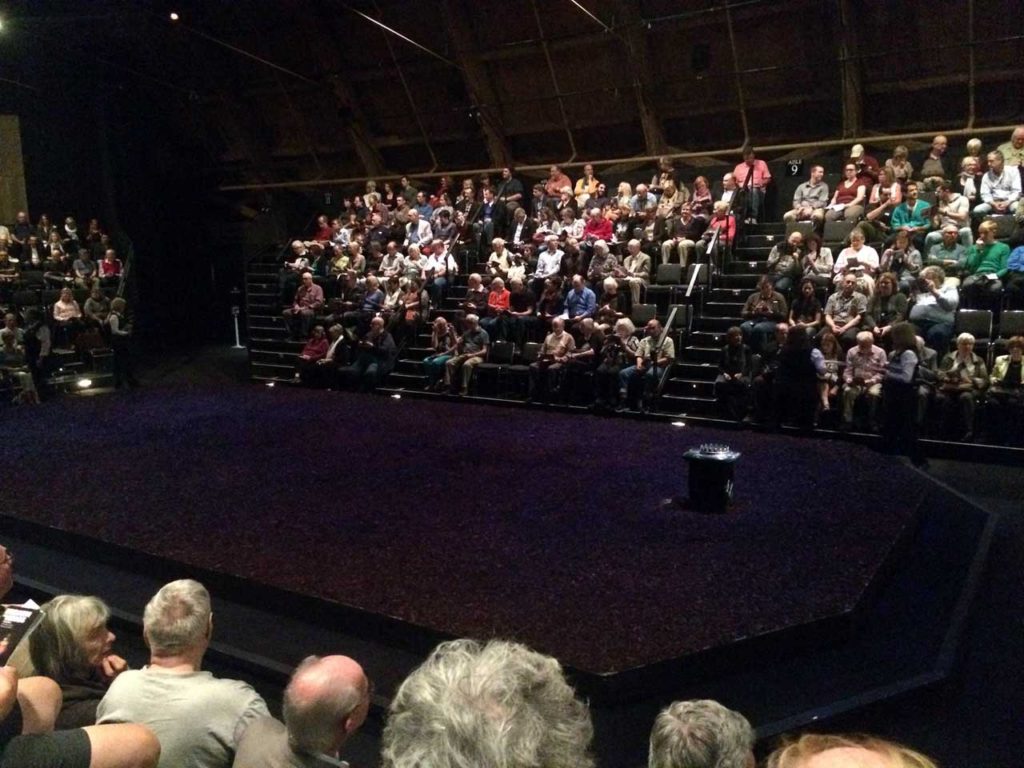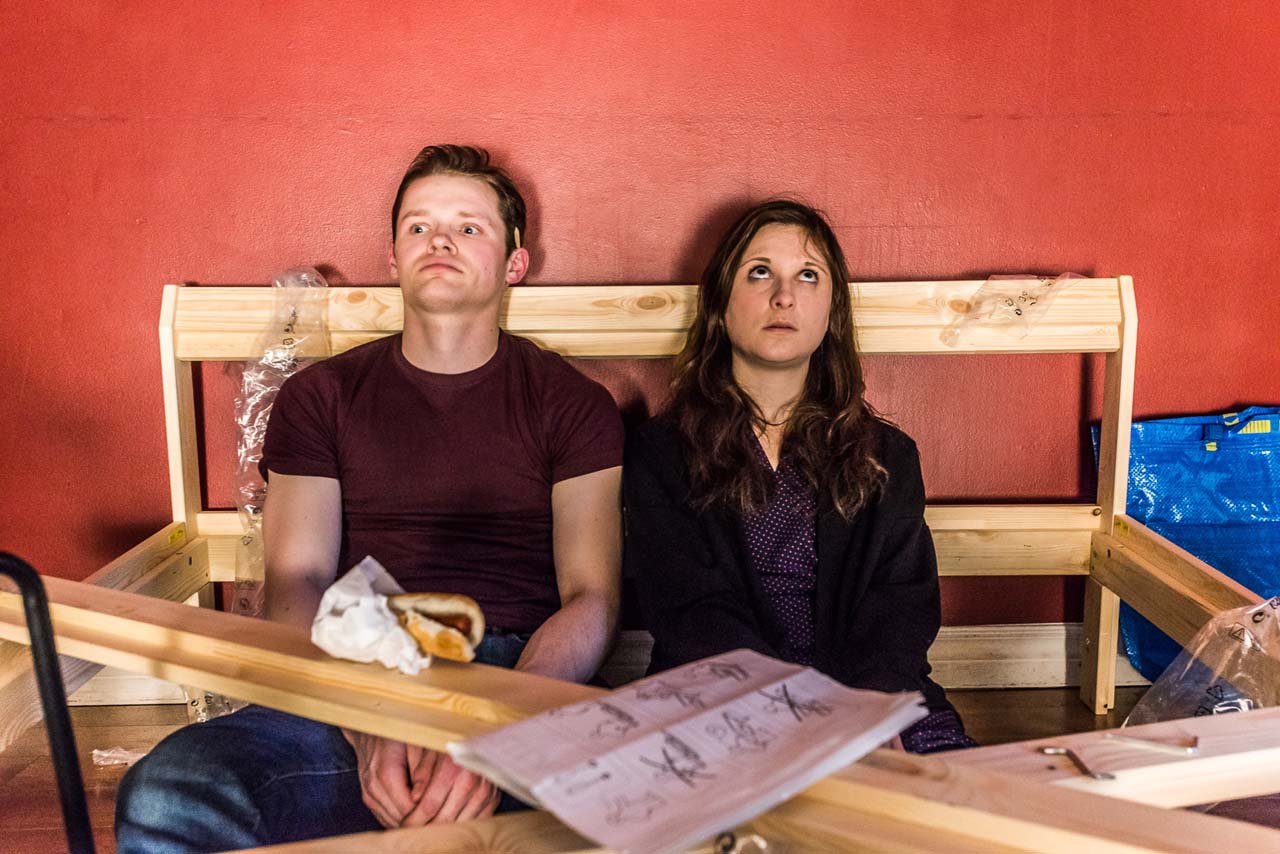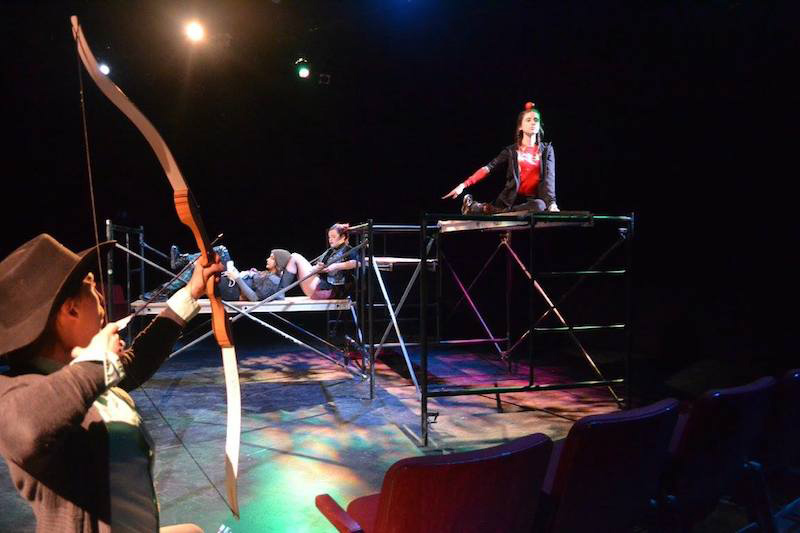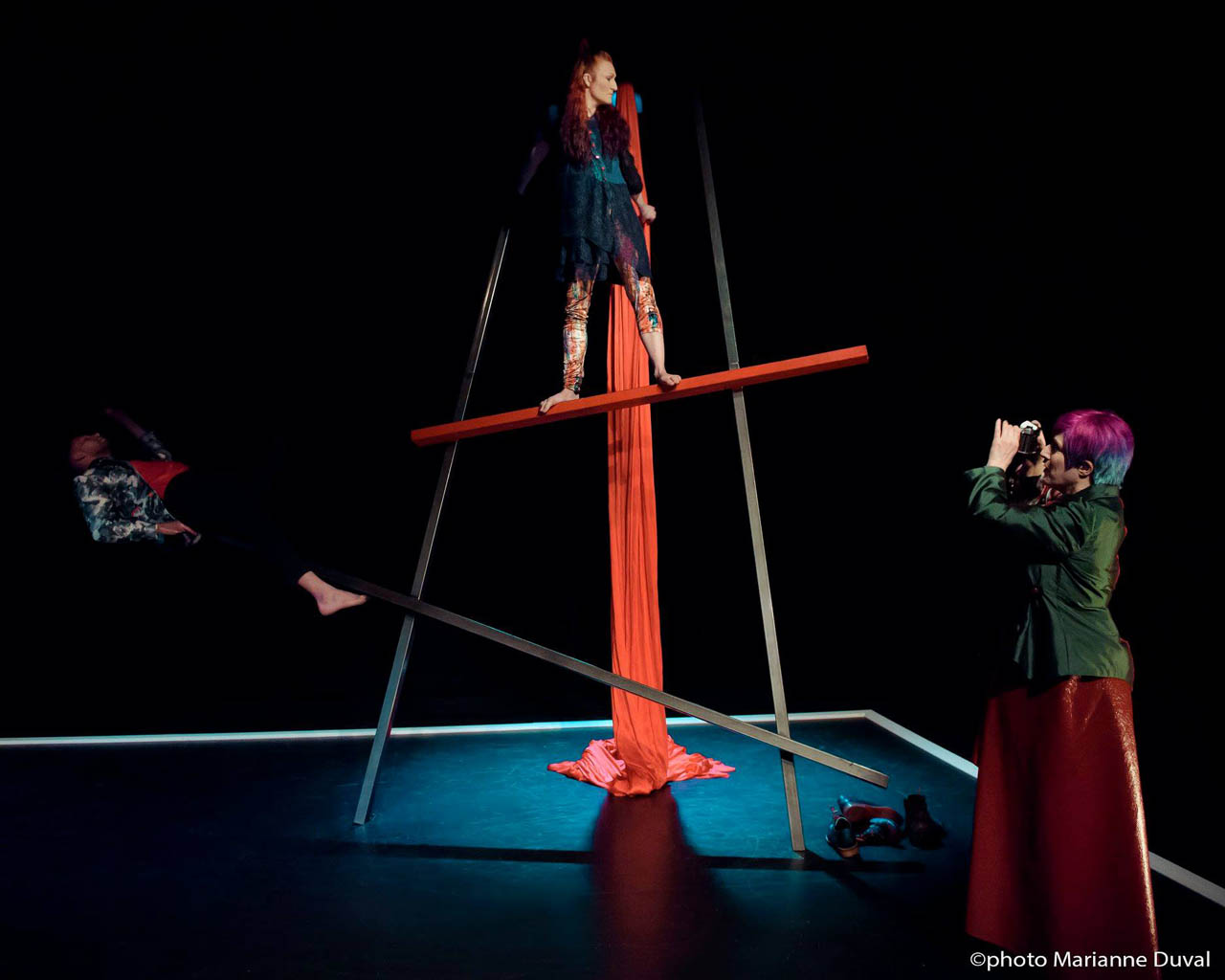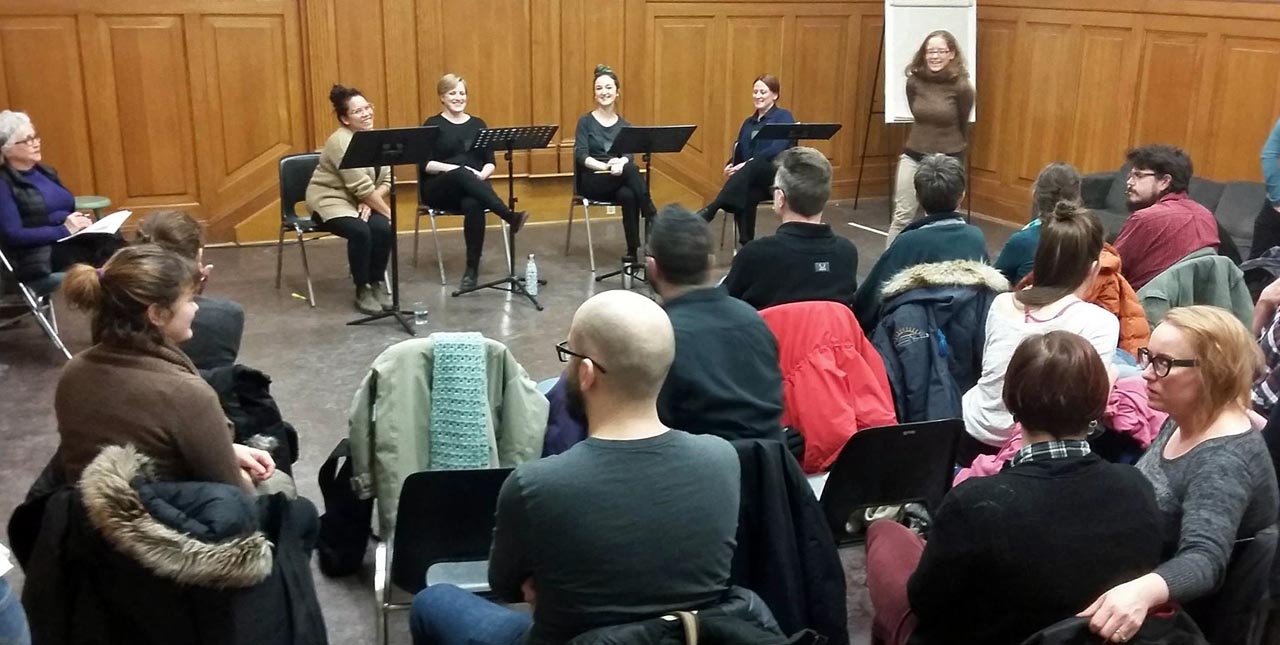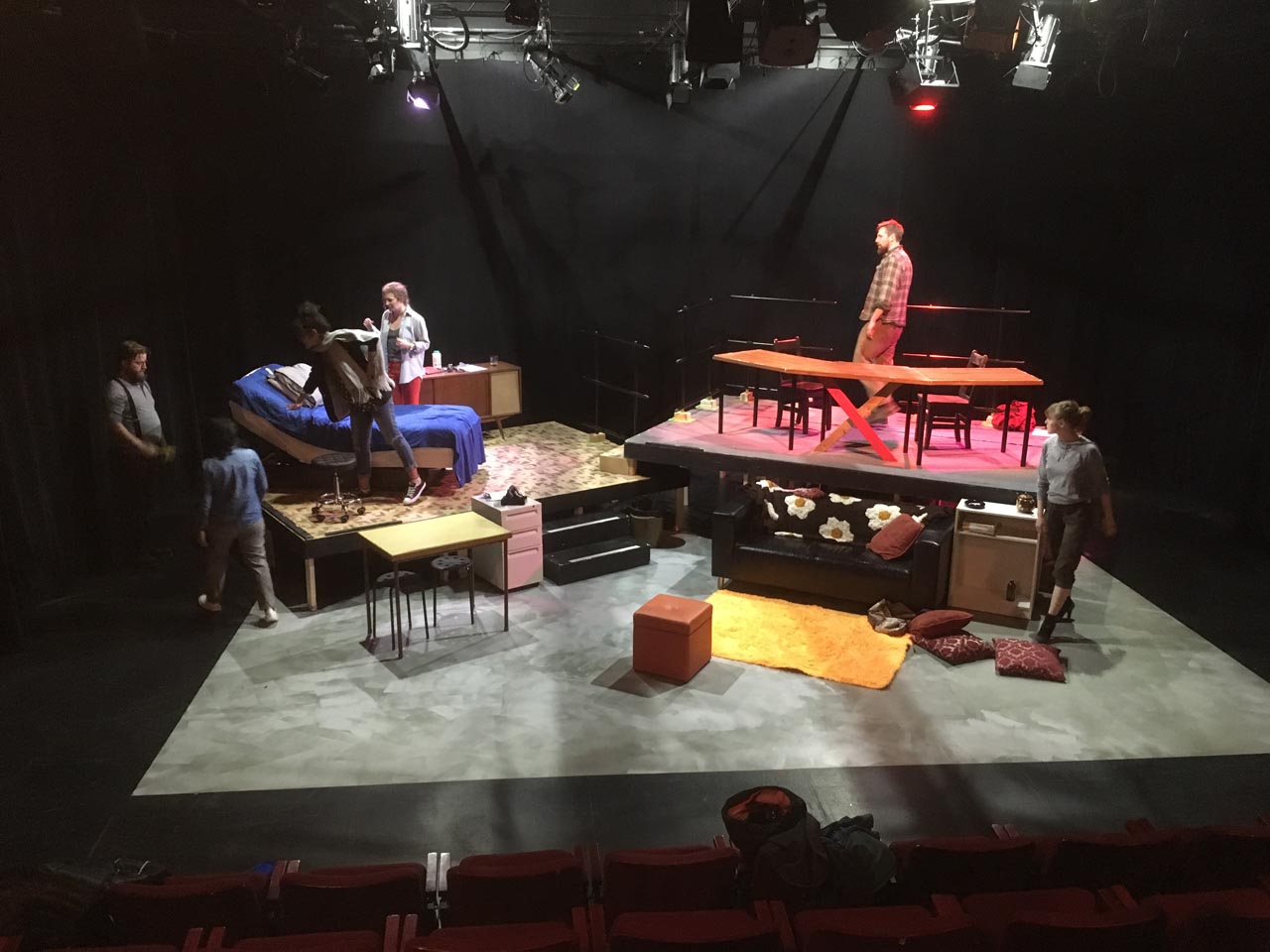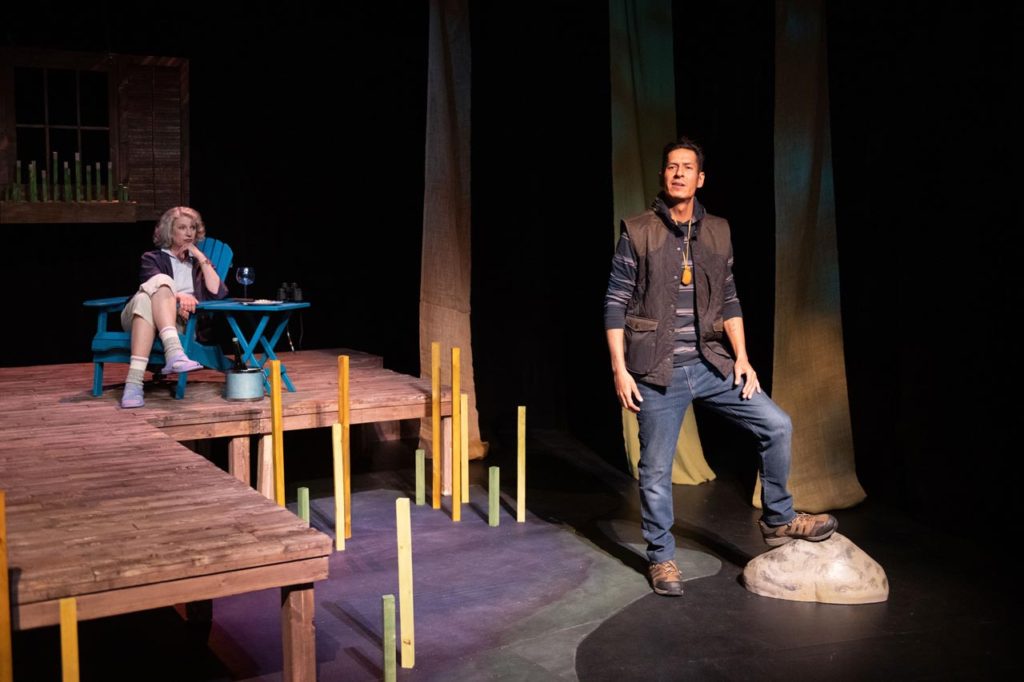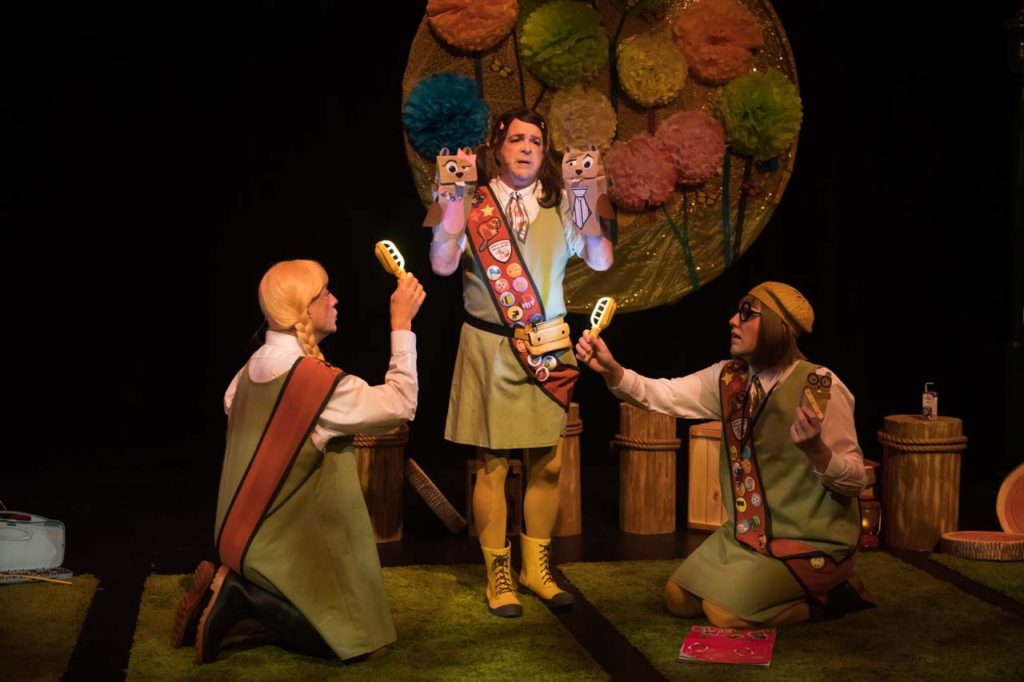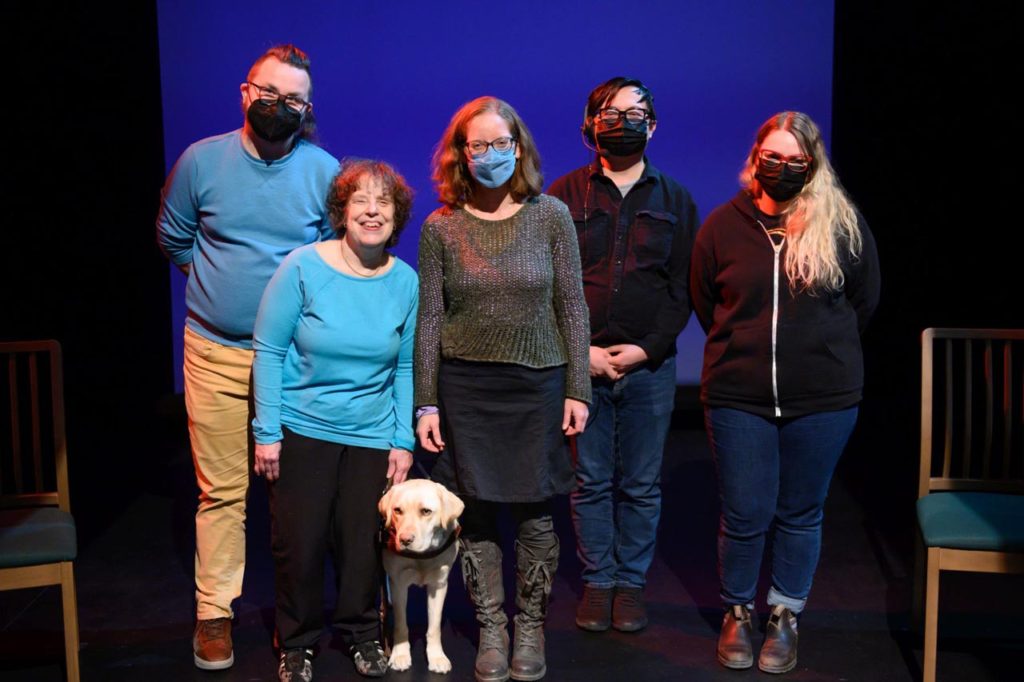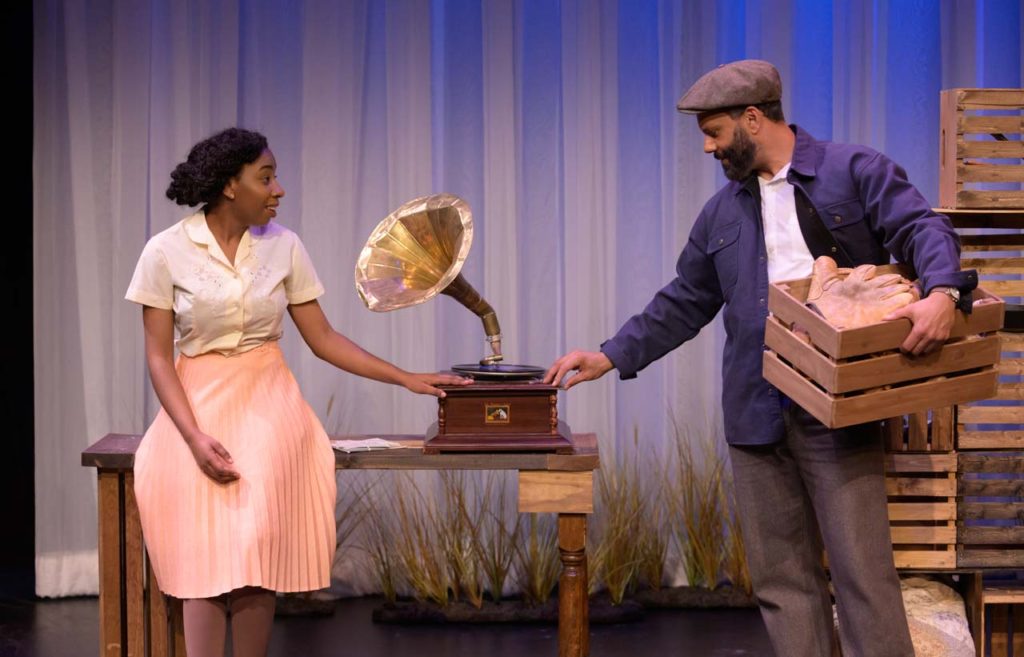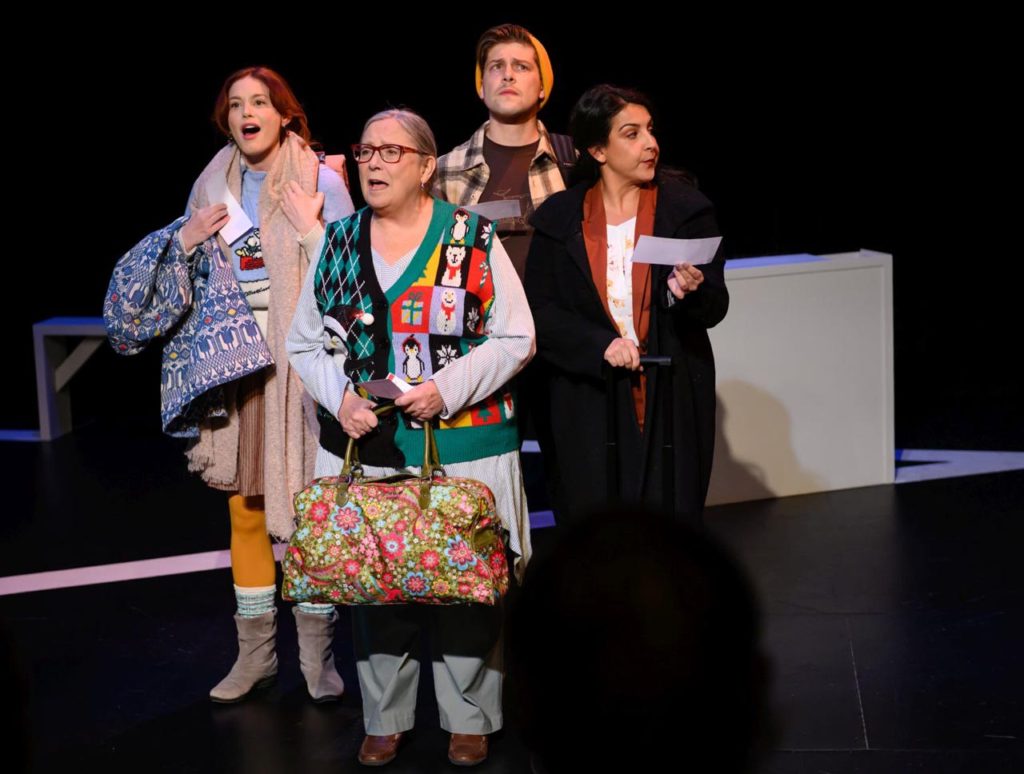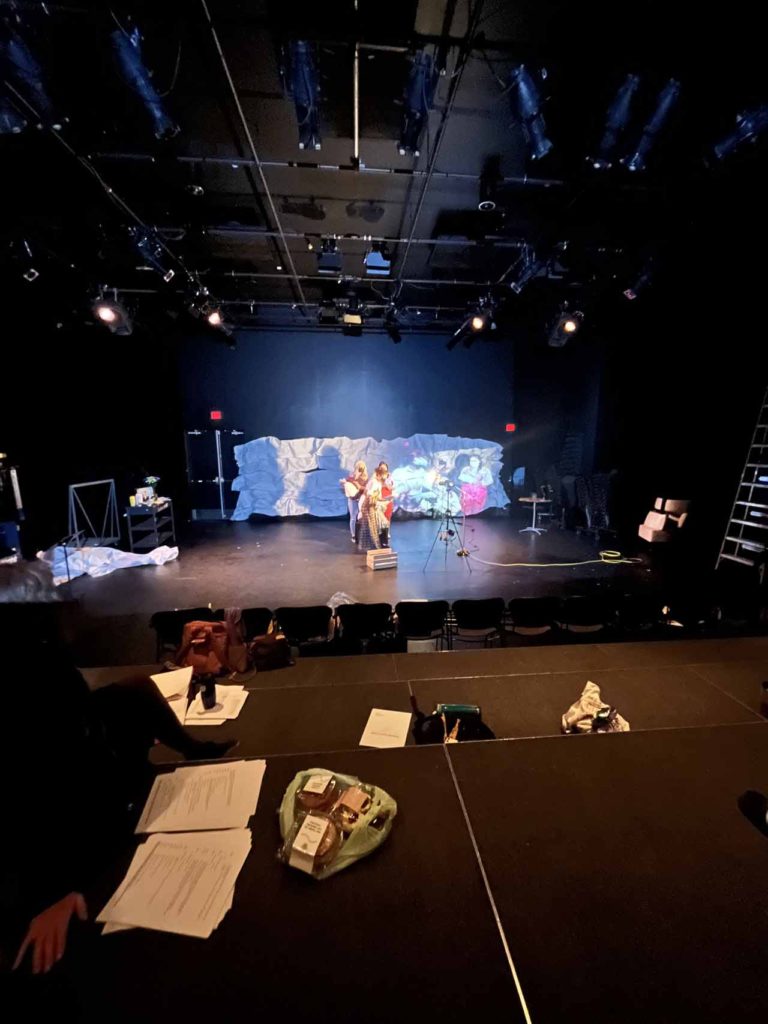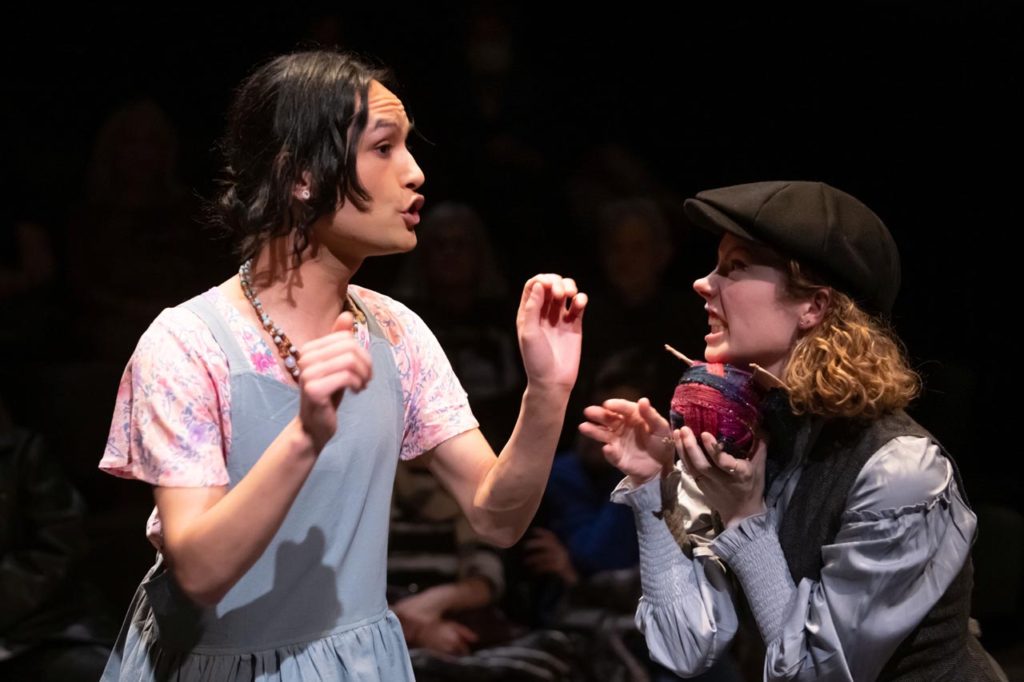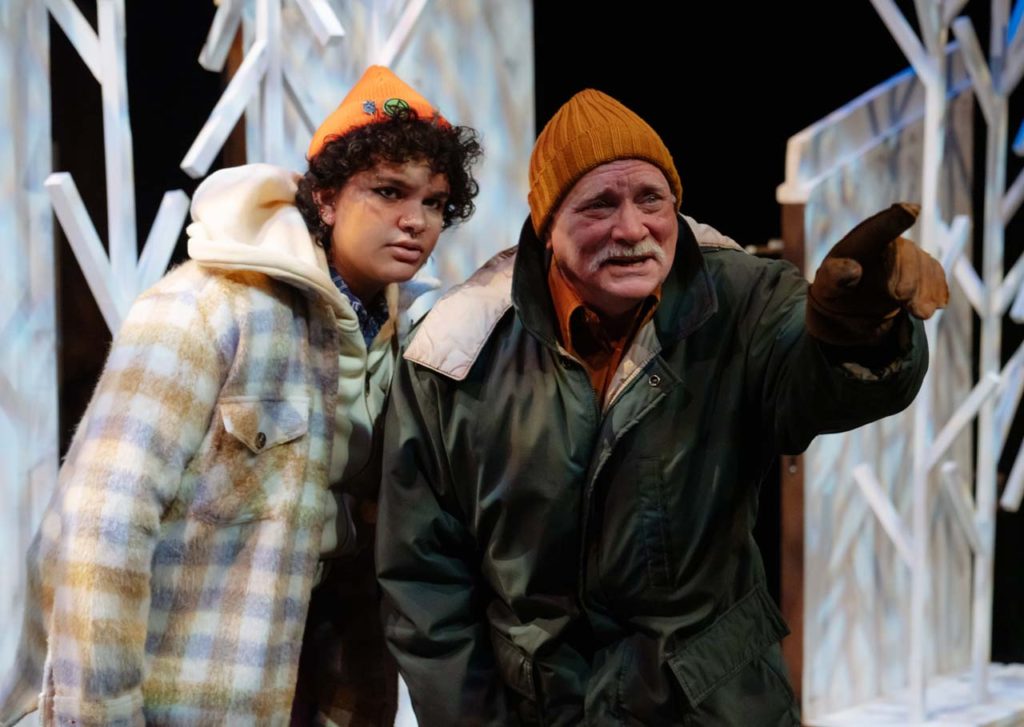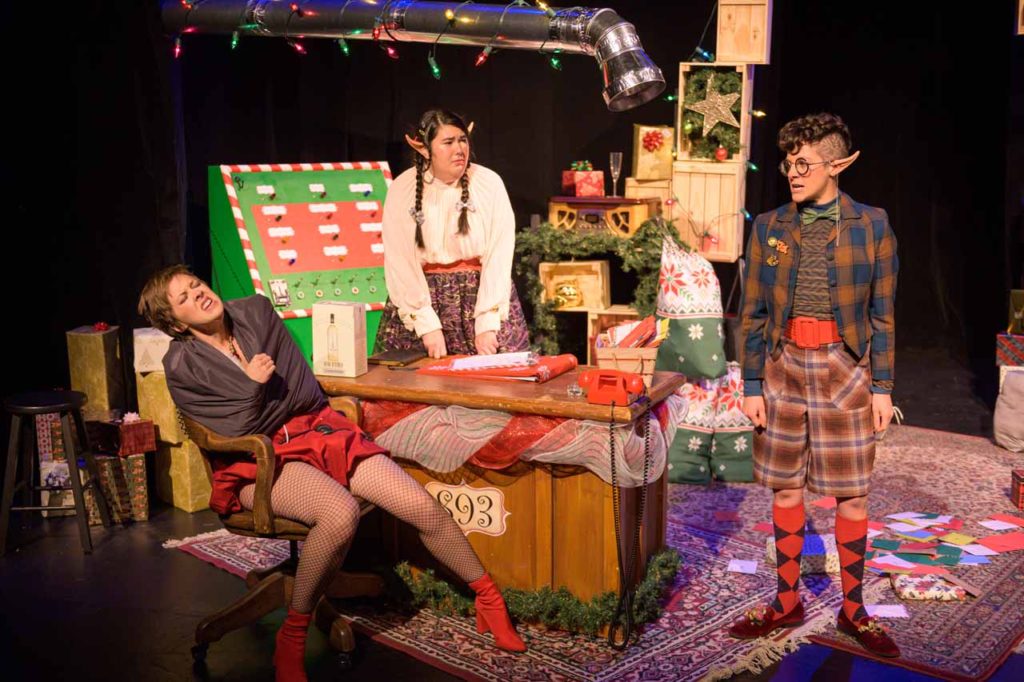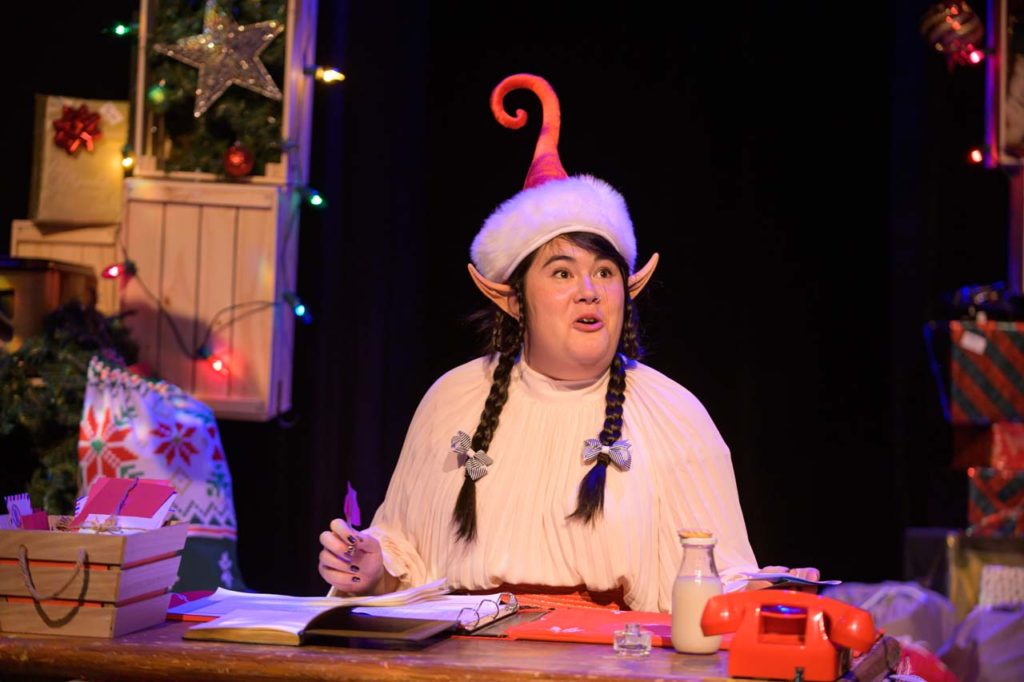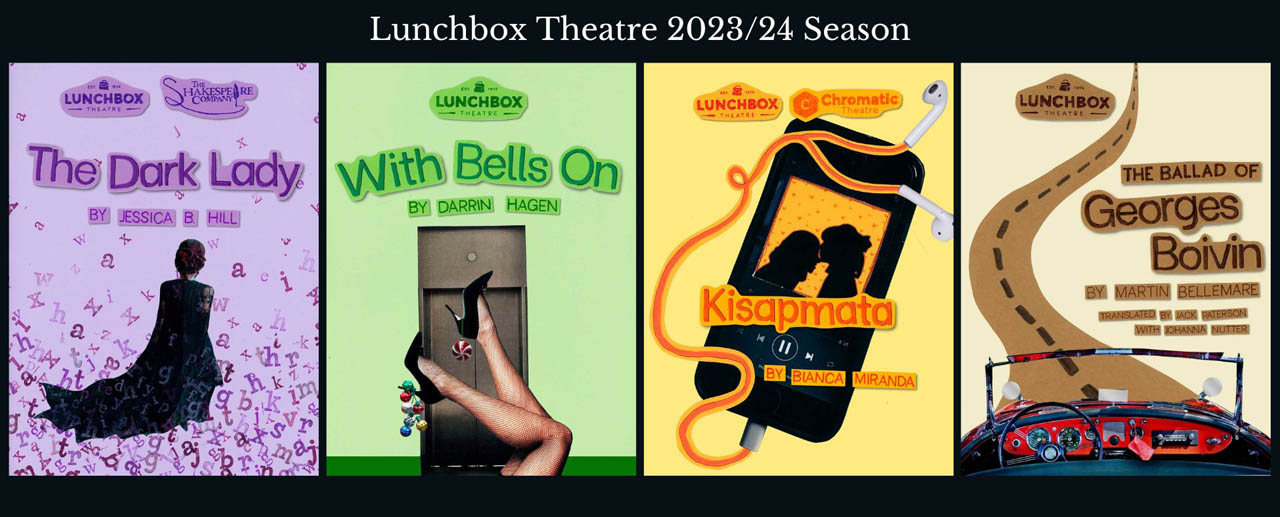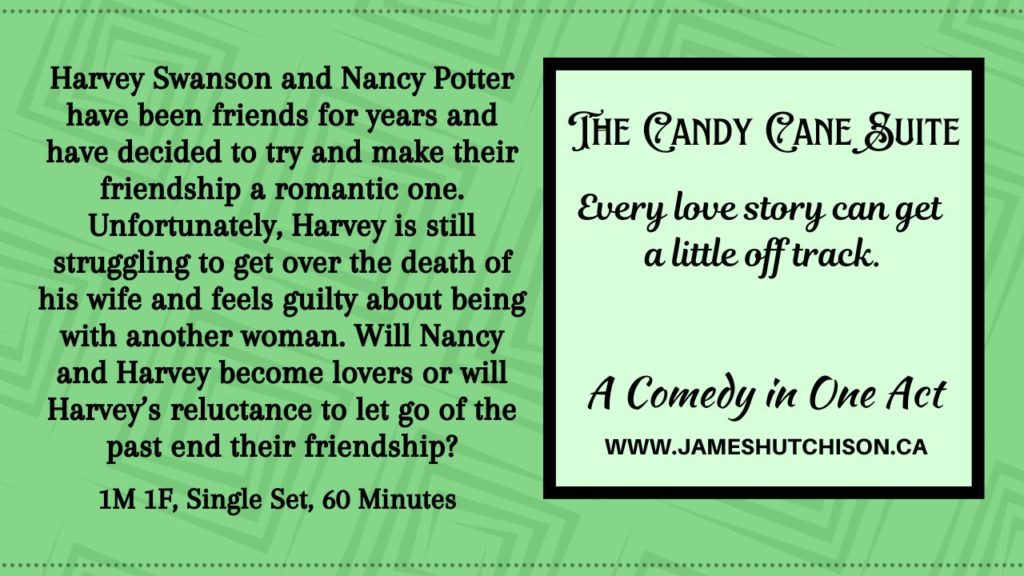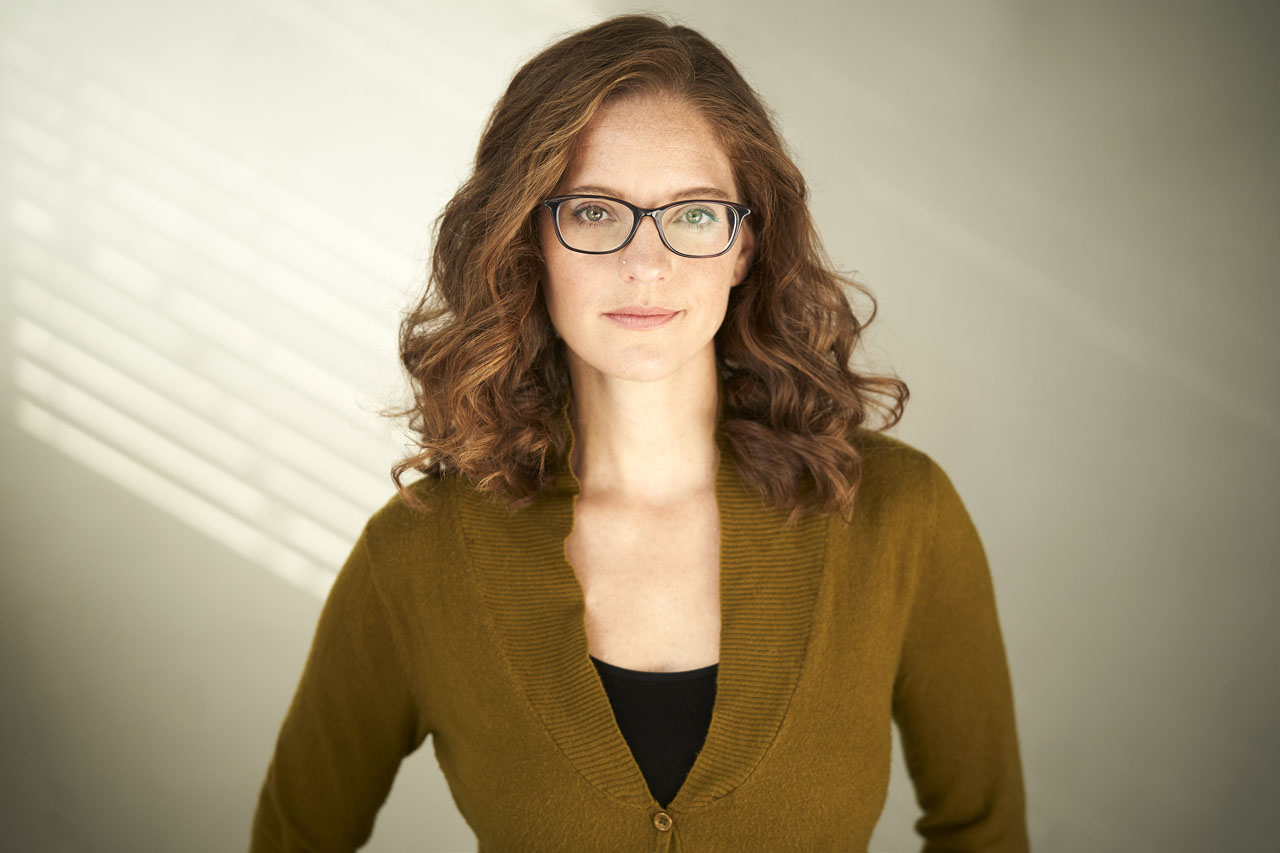
Bronwyn Steinberg the Artistic Director of Lunchbox Theatre is a passionate community builder focused on making theatre an inclusive gathering space where stories are shared that celebrate the diversity of human experience.
“The thing is humans are storytellers and stories are the best way I know to help people understand different people’s perspectives, and if you do understand different perspectives that will – at least in my dreams and in my hopes – help lead to more equity and egalitarian workings in the world and something that is less dominated by money and power.”
I sat down with Bronwyn a few weeks ago to talk with her about Bertolt Brecht, the exciting new season at Lunchbox, and her passion for theatre.
JAMES HUTCHISON
Since you were six years of age, you’ve been sitting in on rehearsals because your mother was a drama teacher at the time and she’s now a professor at the University of Calgary. Tell me a little bit about growing up in the rehearsal hall, and how you think that relates to your life’s path.
BRONWYN STEINBERG
Some of my earliest memories are of going with my mom to the rehearsal hall, and I remember she was directing Grease, the musical. And she was very serious about her rehearsal hall. The kids had to be in character all the time. Even if they weren’t on stage. And I just thought it was fun. I just thought it was normal that you grew up and you did plays. And it wasn’t just seeing my mom in rehearsal. She also took me to plays my whole life, and as soon as I had opportunities to do after-school plays I always did them, and so the magic of theatre was always there, and I got to see so many shows, and I just always knew it was something I wanted to do.
JAMES
Would you attribute any of your style of directing to having spent those early years watching your mother direct?
BRONWYN
I don’t know if I can pinpoint anything. I have certainly learned a lot from my mom both from just watching the way that she works and the way she is in the world and the way she is as my mom because she’s an incredibly powerful personality and super smart and very strong. I’ve learned how to step into a leadership role when needed, but also I’ve learned how to let someone else lead. And I think that serves me as a director. So, when I need to really take charge in the room I can, but I’m also really good at stepping back and empowering other folks to also have leadership within the space.
JAMES
I was doing some research and I came across a couple of past interviews where you mentioned you studied Bertolt Brecht.1 Brecht was an innovative voice in the theatre, and he was very unconventional in his thinking and approach. He believed theatre should challenge an audience and their view of the world not simply be entertainment. So, what is it about Brecht’s approach to theatre that you find exciting, and what influence has it had on your own work?
BRONWYN
It comes back to my folks and my background and who I am in the world, thanks to my family. My parents Shirley and Joe were always very politically engaged and very much on the left end of the spectrum. And their approach to education was deeply influenced by Paulo Freire2 and critical pedagogy. I am not a Freire scholar, nor would I call myself a Brecht scholar either but what’s interesting is both Freire and Brecht are coming out of similar times even though they are in very different places in the world. They’re coming out of a need to speak against powerful regimes and speak up for the common person. And there was always a feeling observing my parents growing up that felt like whatever I did, whether it was in theatre or otherwise, I had to have a sense of social justice and doing good in the world, and speaking up for people or finding a way to help empower people whose voices haven’t been heard.
And so, when I started learning about Brecht, I found he was one of those theatre creators who took a political philosophy that kind of inherently made sense to me and figured out a way to play with it on stage in his practice. The thing is humans are storytellers and stories are the best way I know to help people understand different people’s perspectives, and if you do understand different perspectives that will – at least in my dreams and in my hopes – help lead to more equity and egalitarian workings in the world and something that is less dominated by money and power.
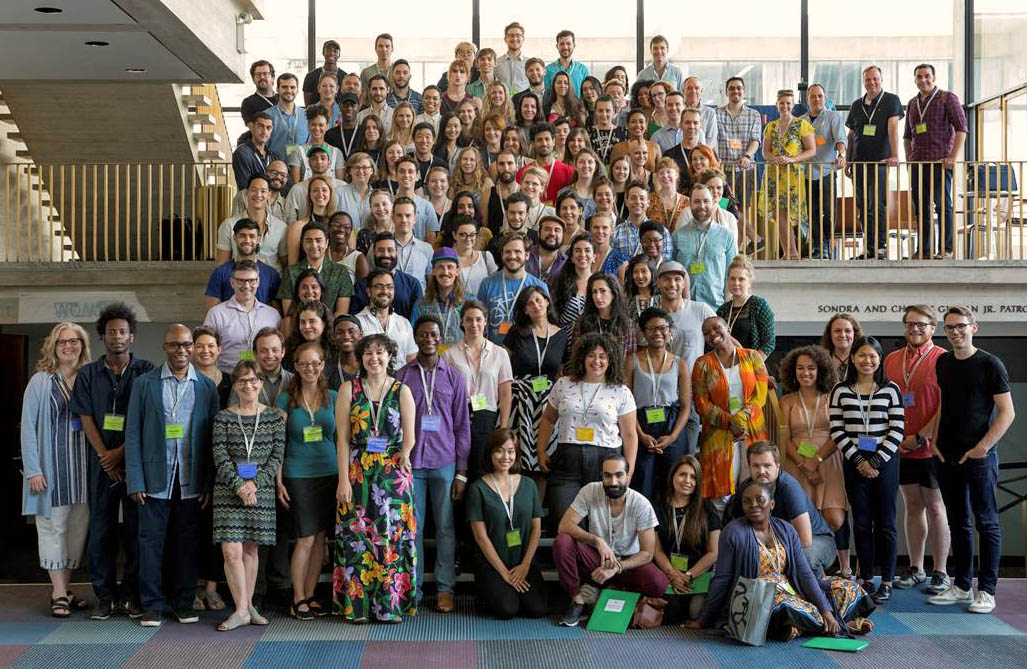
JAMES
So, you’ve gotten experience early in your career at the Lincoln Center in New York and at the Stratford Festival here in Canada. I’m wondering how those particular experiences were a value to both your artistic practice and the development of your career.
BRONWYN
The Lincoln Center was an opportunity to be part of the Directors Lab, so it wasn’t part of their regular programming. I didn’t work on any shows but for three weeks in two summers, I got to be part of a seventy-person lab of people from all over the world talking about directing and engaging with ideas about why we make theatre and how we do it. There was about a third from the New York region and then another third from across the US and then the other third was from all over the world. And at Lincoln Center and at Stratford part of what was so important to my development, both as an artist and within the structure of my career was meeting people. It’s all about the people you meet and the different ideas that are sparked in random conversations over lunch or sitting under a tree or in the rehearsal hall.
It was really powerful for me to learn at Stratford that yes, I was surrounded by some of Canada’s most talented and experienced theatre artists, but they’re also humans and everybody making a play kind of does some of the same things. We all go into rehearsal and put a thing on stage, and we speak the same language even though our approaches are really different. But we’re all just trying to tell a good story and reach an audience and make it clear and make it compelling and make it entertaining and make it meaningful. And both of those experiences, I think, really helped me accept myself as an artist.
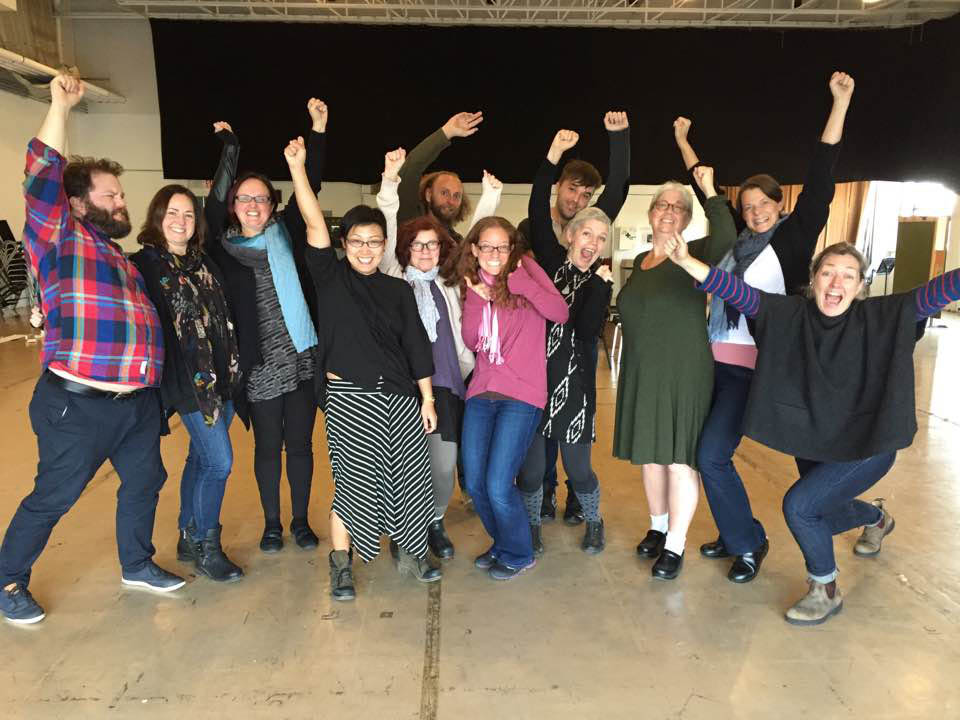
JAMES
You lived in Ottawa for twelve years. You got your MFA there and you made it home and you became a vital part of the local arts community. In 2013, you formed Theater Artists Cooperative: the Independent Collective Series, which is known by its acronym TACTICS.
TACTICS was designed to give independent artists an opportunity to stage larger-scale works beyond the production limitations of things like the Fringe and to let artists have larger casts and more sophisticated design elements.
And now we’re ten years later; TACTICS has been a huge success. You’ve staged multiple shows. You have a main stage series as well as a number of play development opportunities and though you are no longer in Ottawa as the artistic producer, you are still on the board.
So big congratulations. You started something and not everything that people start succeeds, you succeeded, and it must have taken a lot of drive, determination, and long hours. What was the process like? How did you stay motivated? And what sort of future do you envision for the festival?
BRONWYN
I’m really delighted that I was able to create something that didn’t just end when I left, which is so often what happens to a passion project, and it doesn’t mean the passion project isn’t valuable. It just means that it’s hard to sustain. And so, I’m really glad to see that the Ottawa community has embraced TACTICS and felt like it’s really a necessary thing.
Back in the beginning, I was slow to incorporate the organization. Slow to bring on a board of directors and slow to try to switch from project funding to operating funding because one of the things I really wanted to be sure of was, does Ottawa even need this? Or does Bronwyn need this?
And it was clear that I felt I needed something. I knew I wanted to be an artistic director and I didn’t know how to get a company to take me seriously if I didn’t have any experience. So, I thought, “Well, I’ll create something and be the artistic director of it, and I’ll learn a bunch and that will be a great stepping stone in my career, and hopefully it will make a contribution to the community.” But I wanted to see what contribution it was making in the community before I tried to put all the things in place so that it could sustain a transition.
And it was always a labour of love and always a passion project and I don’t ever want to try to consider how many hours I put into it and what money I actually got paid out of it because there was a lot of unpaid labour as I was building it. That’s not necessarily a good model to start an organization, but that’s the world we live in. If you’re some sort of entrepreneur, you kind of have to build it and hope that they come and then pass it on to new leadership.
I’m so deeply proud of it, and I’m so excited about the new leadership and the growth that is continuing to happen there. Micah Jondel DeShazer is now the Artistic Director, and Lydia Talajic is the General Manager. They’re the staff and now they actually do get to invoice all the hours that they work and have a salary.
JAMES
You did an interview a couple of years ago where you said, Lunchbox is the right job of all the artistic director jobs you’d applied for. You said, “It’s the best fit, but it is also the best timing.” So, what made it the best fit? Why was it the best timing? And now that you’ve been in the job for a couple of years, how is it working out?
BRONWYN
I love Ottawa, but it’s a smaller city and I was ready for new opportunities. So, the timing was really good because we had incorporated TACTICS and had already started to think about a succession plan. But it was also late 2020 and my independent artist career was kind of like staring into a terrifying void like so many of us because everything had been cancelled. And I thought, “Oh, my God. What am I even going to do?” And I felt like I’d won the lottery getting an actual salary and a job at a time when no one knew when theatres were going to open again.
And I also think everything kind of happens for a reason because I did end up at the right place. I think Lunchbox’s emphasis on new works and new Canadian works is really something that is just very beloved by me. With TACTICS I did a lot of new play development and a lot of working with emerging artists. And Lunchbox has quite a history of being a place where emerging artists get their first professional gig or where more established artists get to try something new and actors get to become directors and a lot of what I was doing at TACTICS was creating opportunities for folks to work on a scale they hadn’t before.
And so, it just felt like such a natural fit in those ways. And the programming over the years has kind of a tradition of it’s at lunchtime and you want to have a good time at the theatre. And as much as I talk about socially relevant and political and meaningful work, I still always want to have a good time at the theatre. And even if I am doing something that could have quite heavy themes, I want people to leave feeling uplifted, and as I looked at the history of Lunchbox shows I could see that type of programming. So artistically it felt like a really good fit as well.
JAMES
Well, then why don’t we talk about how your current season of plays feeds into that and reflects Lunchbox in the Calgary theatre community and maybe in the Canadian theatre community?
BRONWYN
I don’t usually think of programming around a theme, but as I look at these four pieces, I have realized that all four of them depict moments in people’s lives where another person really changes who they are and changes who they are in the world, which is I hope what theatre does for everyone.
In The Dark Lady there’s this imagined relationship between William Shakespeare and Emilia Bassano that if it happened, it actually transformed the world for all of us because it transformed Shakespearean literature. With Bells On is about this unlikely pair that gets stuck in an elevator together, and it totally opens each of their eyes to different experiences of the world. Kisapmata is a beautiful love story between a visitor to Canada and a Canadian resident who is part of her diaspora. And then The Ballad of Georges Boivin is about this guy who after his wife of fifty years dies decides to go on a road trip from Quebec to Vancouver with his friends to see if his first love is still in Vancouver. He’s not trying to get back together with her he just wants to know if someone who meant something to him fifty years ago is still there.
When I look at these four plays, they really go together in that theme while also being wildly different styles and different kinds of playwrights. Kisapmata is a new play by emerging Calgary artist Bianca Miranda, so it’s very local. With Bells On was developed at Lunchbox about ten or fifteen years ago by Darrin Hagen. The Ballad of Georges Boivin is a translation from Quebec playwright Martin Bellemare. And The Dark Lady by Jessica B. Hill just premiered this summer at Shakespeare in the Ruins in Winnipeg and at Shakespeare on the Saskatchewan in Saskatoon. So, this season is a neat mix of things from – right here, right now; right here, ten years ago; and from other places across the country.
JAMES
In a time of infinite entertainment, we have YouTube, TikTok streaming services like Netflix and Disney+. There are all sorts of amazing shows out there, Game of Thrones, Mad Men, Flea Bag, and The Good Place. There are interactive games – Red Dead Redemption, The Last of Us and The Last of Us crossed over and made an amazing mini-series. And you still find good old-fashioned radio, books, and music. So, where in this massive, modern, mix of art, storytelling, and entertainment do you think theatre fits. What does it offer that makes it unique or special?
BRONWYN
I think it offers what it always offered, which is a chance to be in community while you hear a story. And I think that all the amazing entertainment that is out there and the different media that is out there is really exciting. I love it. I consume all kinds of different things as a watcher and sometimes player but that doesn’t replace the need to actually share in the live theatrical experience. It’s similar to watching the game on TV or going to the game. Going to the concert or listening to the recording. Even going to the movies versus watching it at home on Netflix. Humans are social and we understand something differently when we do it with other people.
This amazing thing always happens when the first audience arrives for a show. Suddenly as a director I see the play differently. The whole time I have been rehearsing the show I’m trying to think what will audiences not understand? What will they find funny. And all that stuff? And then when I have someone sitting next to me, and they don’t have to do anything. They don’t have to laugh. They don’t have to ask me a question. They don’t have to give me feedback. The fact of them sitting there while we watch the same thing together in the room – boom – makes me see it differently. The way we observe something is different in company.
And I think that theatre will always have an important place in our storytelling and in that human need for storytelling because of what it offers by doing it live. You feel it as an audience member and you certainly feel it as a performer or theatre maker and it’s like, okay, we have this moment together. We’re here. You’re watching me. I am watching you and we are sharing in this creation of this idea about this story or character. And it is something we do together.
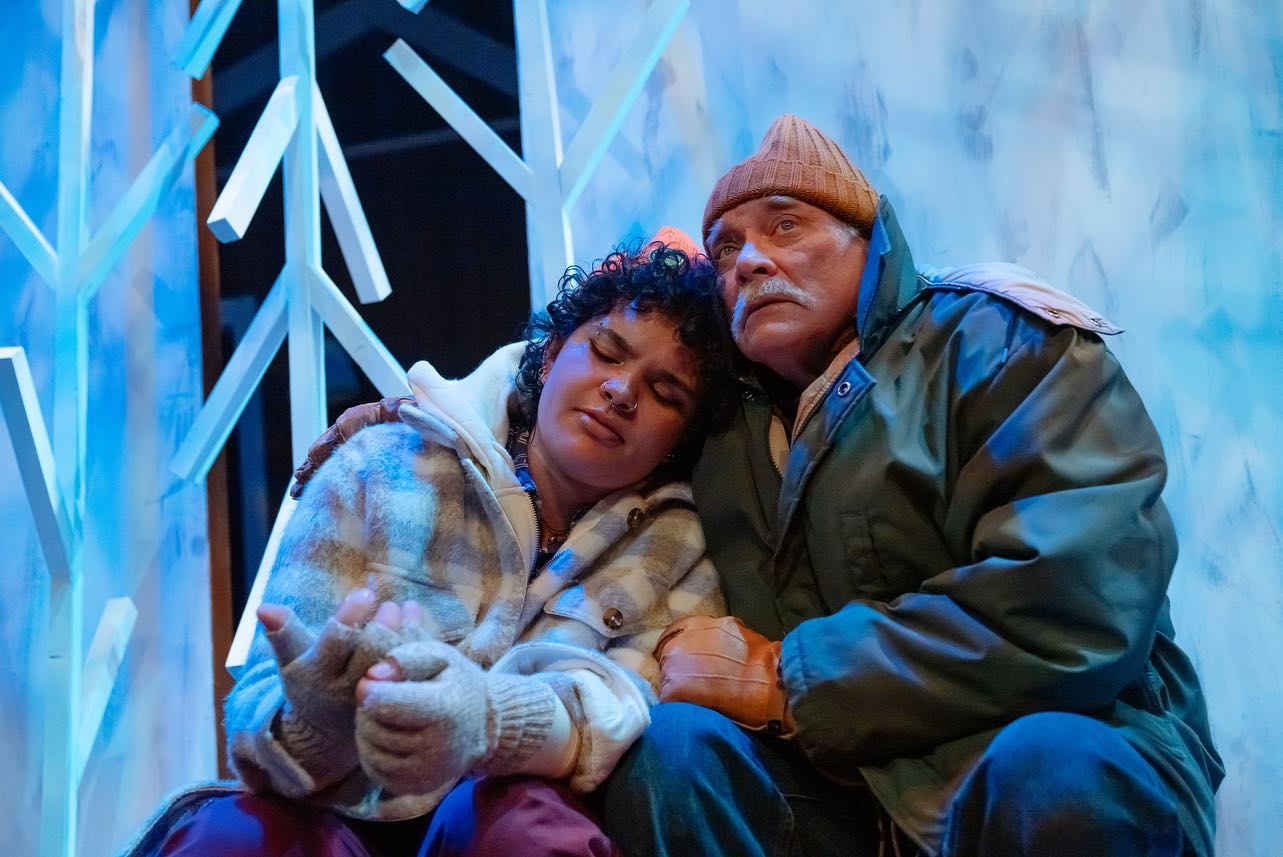
JAMES
I noticed when I was doing some research for this interview that back in 2012 you did a production of The Hobbit at a prison. The only reason I mentioned it is because some years ago, I had an adaptation of my version of A Christmas Carol produced at a prison down in the US and I wrote a blog post about it. What was it like to do that show?
BRONWYN
Getting to do that show in the prison was a really special experience. It really taught me a lot about how important what we do is and how transformative it can be for people. And I got to attend a really neat conference presentation about prison theatre at an international theatre conference and they do a lot of theatre in prison in Italy. And it was an Italian director talking about it and everything he presented was amazing to me, but also completely unsurprising after my experience. They have found that in their prisons before the theatre program it was 60% of people that would re-offend or something like that and with inmates that had gone through their theatre program the rate was 6% and it was like this wild reduction.3
There is something really powerful about being a part of something like a theatre experience. It takes a person completely out of their day-to-day in the prison and gets them to be part of serving a greater purpose, which is the story and offering it to someone else, which is the audience. And I think we don’t realize how important it is for people to feel valued in the world and that they matter, and theatre is such a simple way to do that and it’s incredibly powerful. And actually, A Christmas Carol is kind of a great parallel because I think so much of Scrooge’s journey parallels what the guys that I worked with in prison were learning about being a part of something bigger and being a part of society in a way that a lot of them were never told they could.
***
To purchase individual tickets to any Lunchbox show or play passes for the season visit the Lunchbox Theatre Box Office online or call 403-221-3708.
***
1 Bertolt Brecht (10 February 1898 – 14 August 1956) was a German theatre practitioner, playwright, and poet. He developed the theory and practice of Epic Theatre. Epic Theatre proposes that a play should not cause the spectator to identify emotionally with the characters or action before him or her. Instead, theatre should provoke rational self-reflection and a critical view of the action on the stage. Brecht wanted audiences to have a critical perspective in order for them to recognize social injustice and exploitation and to be moved in order to go from the theatre and effect change in the outside world.
2 Paulo Freire (19 September 1921 – 2 May 1997) was a Brazilian educator and philosopher who was a leading advocate of critical pedagogy. Critical pedagogy insists that issues of social justice and democracy are not distinct from acts of teaching and learning. The goal of critical pedagogy is emancipation from oppression through an awakening of the critical consciousness. When achieved, critical consciousness encourages individuals to effect change in their world through social critique and political action in order to self-actualize. His influential work, Pedagogy of the Oppressed, is considered one of the foundational texts of the critical pedagogy movement.
3 In Italy prisons, conditions are poor, but theater is thriving – By Tom Kington, Los Angeles Times – “On average, 65% of Italian prisoners go back to committing crimes after their release, but for those who have acted in jail, it’s nearly zero.”
FURTHER READING
INTiP – International Network of Theatre in Prison The INTiP intends to support theatre projects for planning, relationship-building, debate and qualification in prison institutions around the world. INTiP presents itself as an instrument, a reference to the many operators of this growing field in the context of a phenomenon that originated internationally over 60 years ago.
